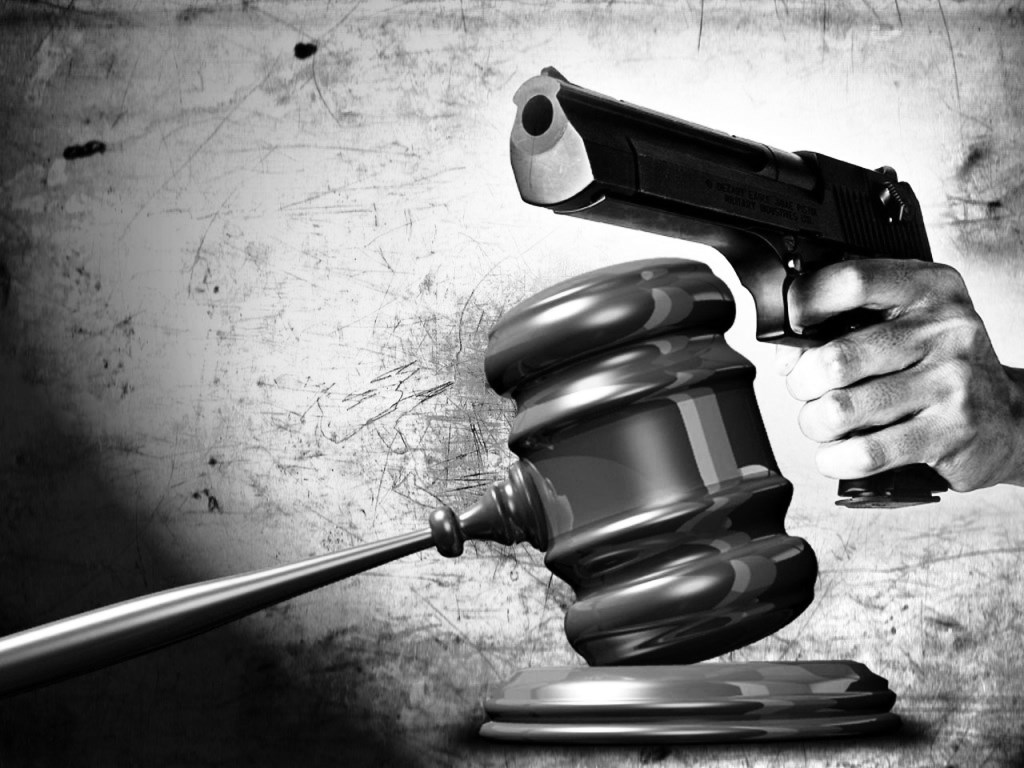 A completely objective means to measure one state’s gun laws against another simply does not exist. There is no cut and dry way to compare laws that are worded differently, and more importantly enforced differently. But academic institutions and lobbyist groups nonetheless love to take the abstract and put it into a study or a survey that appears to show concrete conclusions. While it’s not science, these studies do serve the purpose of generating conversation. Organizations perform the work, issue press releases, and then the news outlets report to the public. And sometimes, if the issue is relevant, a lowly legal blog will continue the discussion. The discussion to be had revolves around the Brady Campaign to Prevent Violence, and its ranking of state gun laws for 2013. The Brady Campaign is the self-proclaimed largest anti gun violence grassroots organization in the country. The organization has been around since the 1970’s but took the Brady name in 2001 with the mission of reforming the gun industry through legislative influence. The 2013 rankings slot Maryland as having the fourth toughest gun laws, only behind California, Connecticut, and New Jersey. The study incorporates a points system based on numerous categories, and even gives out academic letter grades; Maryland merely received an A- and no state received an outright A.
A completely objective means to measure one state’s gun laws against another simply does not exist. There is no cut and dry way to compare laws that are worded differently, and more importantly enforced differently. But academic institutions and lobbyist groups nonetheless love to take the abstract and put it into a study or a survey that appears to show concrete conclusions. While it’s not science, these studies do serve the purpose of generating conversation. Organizations perform the work, issue press releases, and then the news outlets report to the public. And sometimes, if the issue is relevant, a lowly legal blog will continue the discussion. The discussion to be had revolves around the Brady Campaign to Prevent Violence, and its ranking of state gun laws for 2013. The Brady Campaign is the self-proclaimed largest anti gun violence grassroots organization in the country. The organization has been around since the 1970’s but took the Brady name in 2001 with the mission of reforming the gun industry through legislative influence. The 2013 rankings slot Maryland as having the fourth toughest gun laws, only behind California, Connecticut, and New Jersey. The study incorporates a points system based on numerous categories, and even gives out academic letter grades; Maryland merely received an A- and no state received an outright A.
Continue reading →
Articles Posted in Maryland Legislature
State Politician Proposes Marijuana Legalization
 The Blog posted numerous articles on the progress of marijuana legislation during this past legislative session. There were progressive ideas thrown around in the Senate and the House, but neither legalization nor decriminalization bills passed the General Assembly. The only bill to cross the governor’s desk last spring was the complex medical marijuana law that will not be functional for a few years, if ever. The Medical Marijuana Commission, which was established by lawmakers to oversee the program, has met three times to hammer out the details of how to get legal pot to patients in need. But little progress has been made and no resolution is in sight. At this point there are simply too many hurdles to get the program off and running. Readers will recall that the medical marijuana law only authorizes academic medical facilities or hospitals to run the program, but the two largest of these facilities, Hopkins and University of Maryland, want no part of it. There is also an issue with how the hospitals that choose to participate would get their supply of pot. The law allows the hospitals to buy from the federal government, which would be great if the federal government was selling. And they’re not. State licensed pot growers would also be allowed to sell to the hospitals, but at this point there are none. It’s clear that a Maryland resident will not be able to acquire legal pot anytime in the near future; that is unless a more progressive law passes the General Assembly next year. One politician with aspirations to be the next governor has recently publicized her desire for this to happen.
The Blog posted numerous articles on the progress of marijuana legislation during this past legislative session. There were progressive ideas thrown around in the Senate and the House, but neither legalization nor decriminalization bills passed the General Assembly. The only bill to cross the governor’s desk last spring was the complex medical marijuana law that will not be functional for a few years, if ever. The Medical Marijuana Commission, which was established by lawmakers to oversee the program, has met three times to hammer out the details of how to get legal pot to patients in need. But little progress has been made and no resolution is in sight. At this point there are simply too many hurdles to get the program off and running. Readers will recall that the medical marijuana law only authorizes academic medical facilities or hospitals to run the program, but the two largest of these facilities, Hopkins and University of Maryland, want no part of it. There is also an issue with how the hospitals that choose to participate would get their supply of pot. The law allows the hospitals to buy from the federal government, which would be great if the federal government was selling. And they’re not. State licensed pot growers would also be allowed to sell to the hospitals, but at this point there are none. It’s clear that a Maryland resident will not be able to acquire legal pot anytime in the near future; that is unless a more progressive law passes the General Assembly next year. One politician with aspirations to be the next governor has recently publicized her desire for this to happen.
Continue reading →
Maryland Marijuana Laws Explained
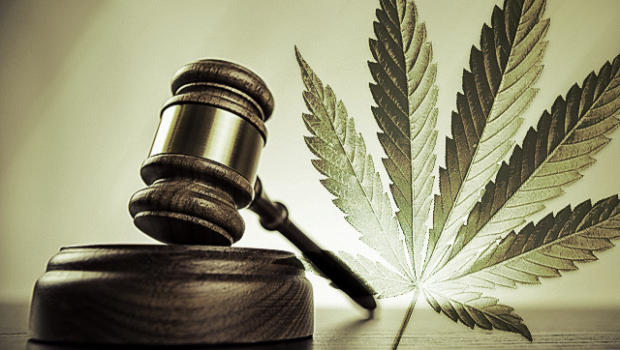 There is still a great deal of confusion regarding our state marijuana laws, and rightly so. Maryland is one of a few states that have not taken a hardline stance one way or the other on the topic. Maybe it’s because we have a governor with national political aspirations who doesn’t want to show his hand this early in the game. Or maybe the onus falls on the lawmakers in Annapolis who just cannot seem to agree about the direction our laws are headed. We take calls all the time from prospective clients and those who just want to gain an understanding of the current drug statutes. Hopefully this post will paint a clearer picture of the confusing work our elected officials have done in the past few years.
There is still a great deal of confusion regarding our state marijuana laws, and rightly so. Maryland is one of a few states that have not taken a hardline stance one way or the other on the topic. Maybe it’s because we have a governor with national political aspirations who doesn’t want to show his hand this early in the game. Or maybe the onus falls on the lawmakers in Annapolis who just cannot seem to agree about the direction our laws are headed. We take calls all the time from prospective clients and those who just want to gain an understanding of the current drug statutes. Hopefully this post will paint a clearer picture of the confusing work our elected officials have done in the past few years.
If there were one word to describe the current state of Maryland marijuana policy it would be scatterbrain. Each year during the legislative sessions we see bill proposals ranging from complete legalization to decriminalization, and each year it seems nothing is done. And over the course of his term our governor has spoken frequently on the topic, but at the same time has said next to nothing. The laws reflect this sort of indecision. The way we see it, a government can take four basic stances on the personal use of marijuana; you can have complete criminalization, decriminalization, legalization for medical use, and complete legalization. With respect to our state you can throw out complete criminalization and complete legalization. It is definitely not legal to spark up a joint at a local bar or in the privacy of your own home. But it may not be criminal to spark one up in your house. Somehow Maryland has managed to fall somewhere in between having legal medical marijuana and decriminalization without having fully effective laws for either. We’ll address and explain the laws for both medical use and decriminalization in two separate paragraphs as to not add to the confusion.
Continue reading →
New State Laws Effective This Week
Starting in January of each year the Maryland Legislature meets for about three months to debate and vote on hundreds of proposed laws. News stories chronicling the progress of these bills come out of Annapolis daily during the three-month session. But it’s not until October that the work of the legislature actually begins to affect the people. Now that October is upon us all the new laws that we forgot about over the summer are in the news again, as the first of the month marks their effective date. This year there are a host of new laws that are relevant to the Blog. We’ll start off with one that may seem like a big deal, but those who have been reading each of our posts won’t be fooled by the headlines. As of tomorrow Maryland is officially a medical marijuana state. But as we have discussed numerous times in the past the medical marijuana program will not be functional until about 2016. Even when the program is functional it will hardly be accessible by anyone with legitimate medical need for the drug. The program will only be administered by a few select research hospitals so don’t expect to see medical marijuana dispensaries popping up at your local shopping center or strip mall. The legislature will likely revisit the marijuana issue in the 2014 session though, and pot may actually be decriminalized before the medical use program even treats its first patient.
Continue reading →
High Profile Doctor Reverses Stance On Medical Marijuana
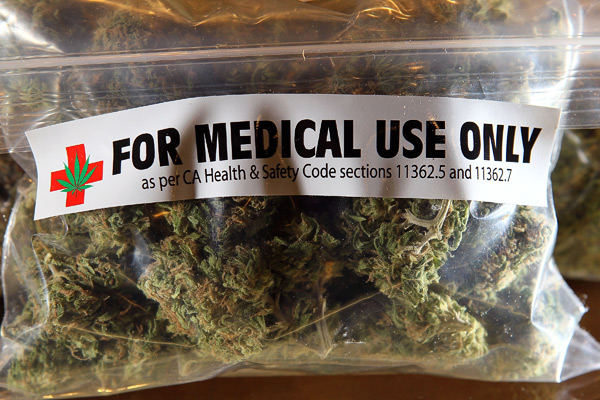 Around this time last year there was much talk about marijuana legislation in Maryland. The possession of less than 10 grams law was about to go into effect, and state lawmakers were preparing proposals for pot decriminalization. The talk is quieter this year though, despite the fact that the state’s medical marijuana law is set to go into effect in October. The reason for the lack of buzz is likely due to the fact that the medical use program will not actually begin functioning until 2016. The law becoming effective will do little to help patients who want the drug now. But, a recent stance reversal by a prominent medical expert has the topic in the news this week. CNN’s chief medical correspondent, Dr. Sanjay Gupta, has reversed his public stance to now favor the implementation of legal medical marijuana programs throughout the country. A graduate of the University of Michigan, Dr. Gupta is currently working on a documentary entitled “Weed”, and has traveled the world to meet with the foremost experts on the subject.
Around this time last year there was much talk about marijuana legislation in Maryland. The possession of less than 10 grams law was about to go into effect, and state lawmakers were preparing proposals for pot decriminalization. The talk is quieter this year though, despite the fact that the state’s medical marijuana law is set to go into effect in October. The reason for the lack of buzz is likely due to the fact that the medical use program will not actually begin functioning until 2016. The law becoming effective will do little to help patients who want the drug now. But, a recent stance reversal by a prominent medical expert has the topic in the news this week. CNN’s chief medical correspondent, Dr. Sanjay Gupta, has reversed his public stance to now favor the implementation of legal medical marijuana programs throughout the country. A graduate of the University of Michigan, Dr. Gupta is currently working on a documentary entitled “Weed”, and has traveled the world to meet with the foremost experts on the subject.
Continue reading →
Medical Marijuana Dispensaries Open In D.C.
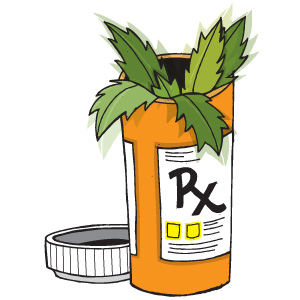 There was no celebratory grand opening, no balloons or customers lining up on the sidewalk. But there were also no police officers waiting to make arrests as customers walked out of Washington’s first operational medical marijuana dispensary with product in hand. Fifteen years after D.C. passed a referendum by an overwhelming majority to legalize pot for medical use, the program is finally off and running. Capital Care, first dispensary to participate in the program, is located just a mile from the United States Capital building where federal lawmakers spent the last decade and a half attempting to block this day from becoming a reality. The dispensary is also located steps away from the ATF headquarters, and other federal law enforcement agencies that are still empowered by federal laws, which have no mention of legalized pot for any purpose. Thus D.C. has become the latest jurisdiction to step into the common dilemma of local versus federal law with respect to marijuana legalization.
There was no celebratory grand opening, no balloons or customers lining up on the sidewalk. But there were also no police officers waiting to make arrests as customers walked out of Washington’s first operational medical marijuana dispensary with product in hand. Fifteen years after D.C. passed a referendum by an overwhelming majority to legalize pot for medical use, the program is finally off and running. Capital Care, first dispensary to participate in the program, is located just a mile from the United States Capital building where federal lawmakers spent the last decade and a half attempting to block this day from becoming a reality. The dispensary is also located steps away from the ATF headquarters, and other federal law enforcement agencies that are still empowered by federal laws, which have no mention of legalized pot for any purpose. Thus D.C. has become the latest jurisdiction to step into the common dilemma of local versus federal law with respect to marijuana legalization.
Continue reading →
Maryland Bars Still Not Liable For DUI Incidents
 The state’s highest court recently ruled on a lawsuit involving dram shop laws, an issue that has been hotly debated for the last few decades. In essence, dram shop laws refer to the liability of bars and restaurants for the actions of their patrons. A state with dram shop laws provides a third party with a legal right to sue a bar or restaurant, which has continued to serve a patron that is visibly drunk, if the patron causes some sort of injury to the third party. Dram shop is simply a traditional term for any establishment that sells alcohol. These laws typically apply to DUI accidents involving serious injury or death. Currently there are 43 states with some sort of dram shop statute, but both the Maryland Legislature and the Courts have not been inclined to follow the majority on this issue, with neighboring Virginia and Delaware sharing the same view. Numerous bills have been proposed over the years, but none has ended up on the governor’s desk for a signature, and the state’s highest court has never upheld a civil action against a bar or tavern for an act of a patron that occurred outside the establishment.
The state’s highest court recently ruled on a lawsuit involving dram shop laws, an issue that has been hotly debated for the last few decades. In essence, dram shop laws refer to the liability of bars and restaurants for the actions of their patrons. A state with dram shop laws provides a third party with a legal right to sue a bar or restaurant, which has continued to serve a patron that is visibly drunk, if the patron causes some sort of injury to the third party. Dram shop is simply a traditional term for any establishment that sells alcohol. These laws typically apply to DUI accidents involving serious injury or death. Currently there are 43 states with some sort of dram shop statute, but both the Maryland Legislature and the Courts have not been inclined to follow the majority on this issue, with neighboring Virginia and Delaware sharing the same view. Numerous bills have been proposed over the years, but none has ended up on the governor’s desk for a signature, and the state’s highest court has never upheld a civil action against a bar or tavern for an act of a patron that occurred outside the establishment.
Continue reading →
Strict Maryland Gun Laws Pass General Assembly
 Maryland is widely known as having some of the strictest gun laws in the entire country. Few states have provisions that even come close to the highly controversial law, which requires citizens to prove a good and substantial reason to possess a carry permit. Maryland also requires mandatory background checks for all gun purchases, regardless of whether the seller is a licensed dealer or a private party. There is also a mandatory seven-day waiting period in order to buy a gun. And now after the close of this years legislative session in Annapolis, the strict are bound get stricter after The General Assembly passed new firearms regulations. The bill, which has generated national attention, is awaiting Governor O’Malley’s signature before it becomes law. All prior indications from the Governor’s office have signaled that signing on the dotted line is a foregone conclusion. The new law will have a sweeping impact on all aspects of firearms regulation including purchasing, possessing, and selling.
Maryland is widely known as having some of the strictest gun laws in the entire country. Few states have provisions that even come close to the highly controversial law, which requires citizens to prove a good and substantial reason to possess a carry permit. Maryland also requires mandatory background checks for all gun purchases, regardless of whether the seller is a licensed dealer or a private party. There is also a mandatory seven-day waiting period in order to buy a gun. And now after the close of this years legislative session in Annapolis, the strict are bound get stricter after The General Assembly passed new firearms regulations. The bill, which has generated national attention, is awaiting Governor O’Malley’s signature before it becomes law. All prior indications from the Governor’s office have signaled that signing on the dotted line is a foregone conclusion. The new law will have a sweeping impact on all aspects of firearms regulation including purchasing, possessing, and selling.
Continue reading →
Medical Marijuana Bill Awaits Governor’s Approval
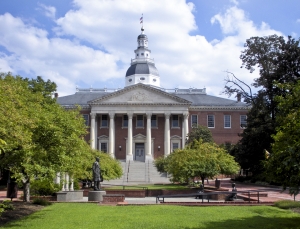 The Blog has chronicled the progress of multiple proposed marijuana laws in the 2013 Maryland legislative session. With less than a week left for lawmakers to debate and ultimately cast their votes, the status of all but one of these proposed laws is up in the air. The bill establishing a state run medical marijuana program implemented with the cooperation of academic hospitals has passed in the House, but not in the Senate. This bill has already garnered support from Governor O’Malley. The State Senate has passed a different bill, which would decriminalize possession of less than 10 grams of marijuana, but the House has not approved this bill. Finally, neither the House nor Senate has approved another bill that would decriminalize, tax, and regulate all reasonable quantities of the drug. This bill received a hearing in the House but has not yet been put to a vote.
The Blog has chronicled the progress of multiple proposed marijuana laws in the 2013 Maryland legislative session. With less than a week left for lawmakers to debate and ultimately cast their votes, the status of all but one of these proposed laws is up in the air. The bill establishing a state run medical marijuana program implemented with the cooperation of academic hospitals has passed in the House, but not in the Senate. This bill has already garnered support from Governor O’Malley. The State Senate has passed a different bill, which would decriminalize possession of less than 10 grams of marijuana, but the House has not approved this bill. Finally, neither the House nor Senate has approved another bill that would decriminalize, tax, and regulate all reasonable quantities of the drug. This bill received a hearing in the House but has not yet been put to a vote.
The one proposed law that has passed both the House and the Senate is a medical marijuana bill that has been long overdue. In 2011 Maryland passed a law that allows patients to use marijuana and avoid criminal prosecution, provided these patients prove a legitimate medical necessity to a Judge. The shortcomings of this law have been well documented on the Blog. A patient can only use the affirmative defense after the case has been brought to court, meaning the legitimate medical use of marijuana can still get you arrested. Another major shortcoming is that there is no protection provided to caregivers, such as parents or other family members of children that use medical marijuana. This is one step away from changing, as the General Assembly has passed a bill that would provide the same legal protection to caregivers as it provides to patients themselves. Caregivers would now be able to use the affirmative defense to avoid criminal prosecution for possession of up to one ounce of marijuana. The caregivers must be Maryland residents who are over the age of 21 and must be an immediate family member of the patient. It is also a requirement that the caregiver be designated as such in writing before the time that he or she is arrested. It is not yet clear how this writing would officially be recorded. The caregiver must have no criminal convictions, and can only be a designated caregiver for one patient.
Continue reading →
Federal Court Upholds Controversial Maryland Gun Law
 A little over a year ago, Federal District Court Judge Benson Everett Legg ruled that the “good and substantial” provision of the Maryland concealed carry gun law was unconstitutional. This provision required citizens to prove to the state Handgun Permit Unit that they had a good and substantial reason before being granted a concealed carry permit. When a Baltimore County man was denied one such permit, he filed suit in federal court, and the Second Amendment Foundation, which advocates for the preservation of the right to carry, joined in the lawsuit. Despite the Attorney General’s best efforts, Judge Legg concluded that the law was too broad to satisfy the state’s compelling interest to protect its citizens and prevent crime. According to the Judge the good and substantial provision did not safeguard the public from every handgun related hazard, and therefore did not do enough to justify a significant limitation on the constitutional right to bear arms. But just last week, a three-judge panel sitting for the U.S. Court of Appeals for the 4th Circuit unanimously disagreed with Judge Legg, and reversed his decision.
A little over a year ago, Federal District Court Judge Benson Everett Legg ruled that the “good and substantial” provision of the Maryland concealed carry gun law was unconstitutional. This provision required citizens to prove to the state Handgun Permit Unit that they had a good and substantial reason before being granted a concealed carry permit. When a Baltimore County man was denied one such permit, he filed suit in federal court, and the Second Amendment Foundation, which advocates for the preservation of the right to carry, joined in the lawsuit. Despite the Attorney General’s best efforts, Judge Legg concluded that the law was too broad to satisfy the state’s compelling interest to protect its citizens and prevent crime. According to the Judge the good and substantial provision did not safeguard the public from every handgun related hazard, and therefore did not do enough to justify a significant limitation on the constitutional right to bear arms. But just last week, a three-judge panel sitting for the U.S. Court of Appeals for the 4th Circuit unanimously disagreed with Judge Legg, and reversed his decision.
Continue reading →
 Criminal Defense Lawyer Blog
Criminal Defense Lawyer Blog

